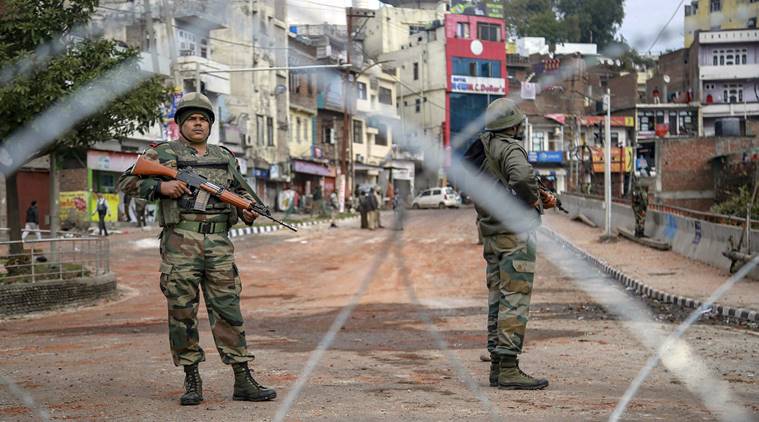Memories stirred by Pulwama: Where childhood ends and fear begins
I have struggled to hold on to its memory, as to the memory of the Jammu of my childhood, a Jammu untainted, for me, by hatred.

The saw mill at the start of the lane. In my growing-up years, the beginning and end of my summer holidays were marked by this mill, a few metres from my grandparents’ house in Jammu. It was never much, just an open shed with a tin roof. But in the dusty, sweaty summers, it carried a hint of the hills.
It was also an odd entity in that neighbourhood. Passing by, we could see what seemed like giant machines whirring and hear the wood being shaved, sliced and hauled. The whiff of the fresh shavings, the irritation in the throat if you swallowed one by mistake, the sharp edges of some spilling onto the road, and the horses lugging the wood in carts, leaving a trail of dung.
When we were grown up enough, we heard another story about that mill. How my aunt’s eldest child, on her way to college, had come under the wheels of a cart there. She didn’t survive. My aunt never talked about her “most beautiful one”. Unlike our angry times, I heard no one blame the mill, whose Kashmiri owners remained respected neighbours.
Years passed, the cousins got jobs and moved out, the grandparents’ house became larger and yet smaller, its grounds holding more cars than grass, our days got somehow shorter, while the mill disappeared. Overtaken by grass, its machines left to rot in a bolting city that it was too slow for.
I have struggled to hold on to its memory, as to the memory of the Jammu of my childhood, a Jammu untainted, for me, by hatred. A Jammu where my mother and aunts spent hours agonising over the thinness and softness of each other’s exorbitant Kashmiri shawls, and proclaiming expertise over the embroidery. A Jammu that would be tied for me with the kangri carried by my grandfather under his clothes (an art lost with that generation) and the kahwa slurped over gossip — the only time we were allowed “tea” by a mother guarding our “fair” looks. The kahwa would help wash down the yakhni, whose fragrance still filled the room, while the mothers swapped recipes of Kashmiri haak saag.
Years later, owning more shawls than she remembers, my mother never passes by a Kashmiri shawl shop — always the most crowded in any market — without picking one up, and demanding a discount. “Hum bhi wahin ke hain,” she says. The shopkeeper smiles back. I ran into one such shopkeeper in Old Jerusalem, of all places, and no, the story didn’t play out any differently.










.png)




























No hay comentarios:
Publicar un comentario